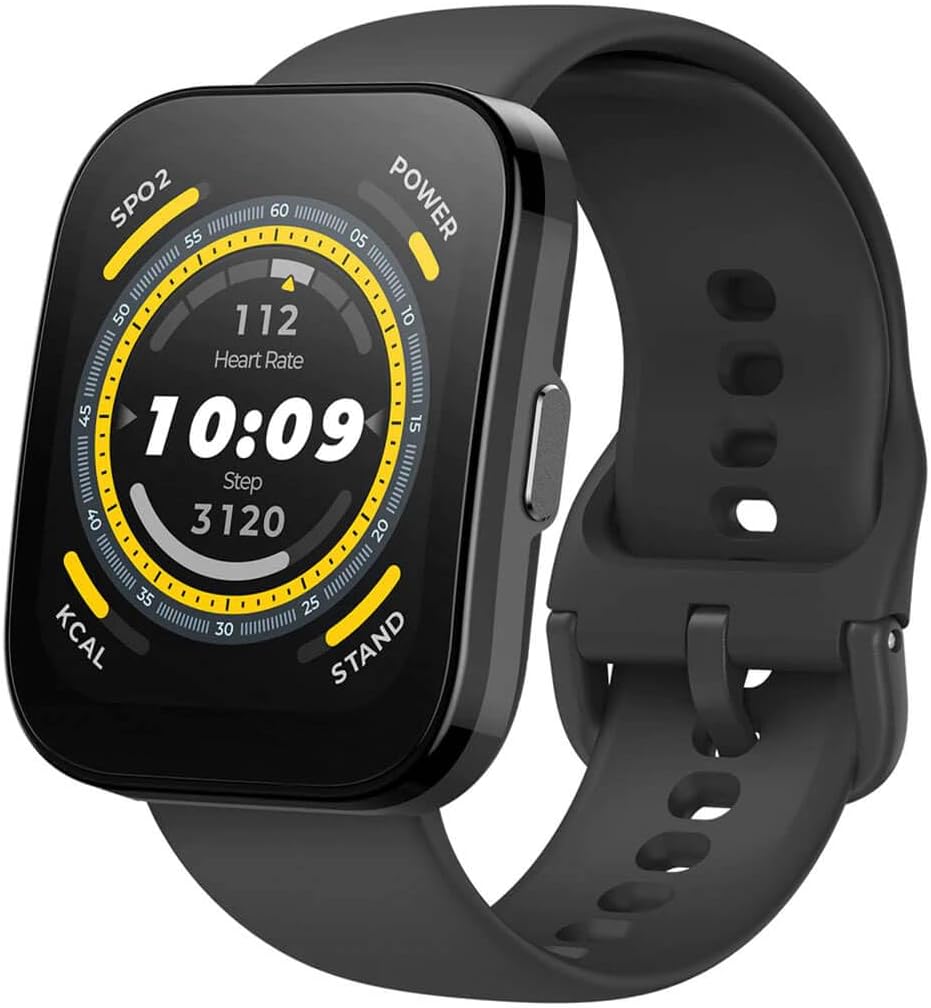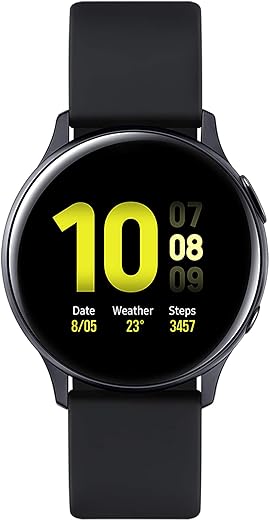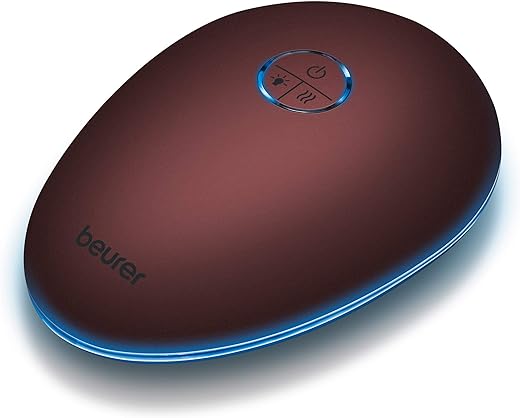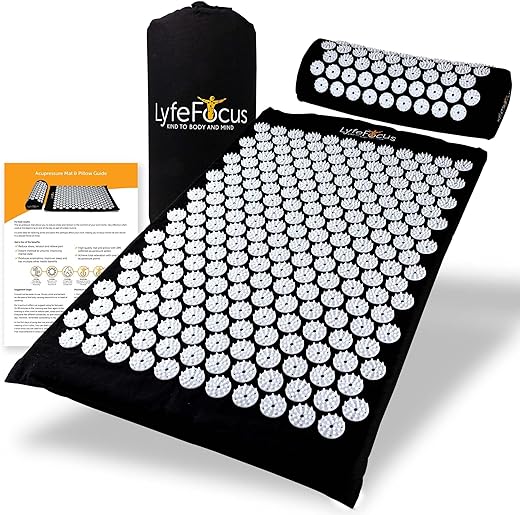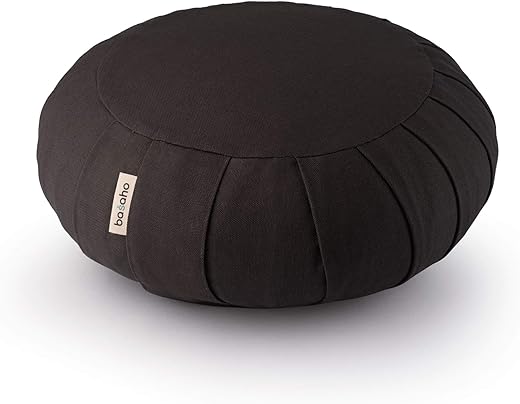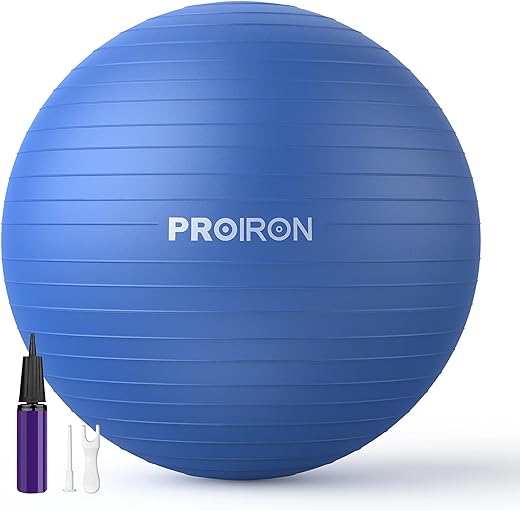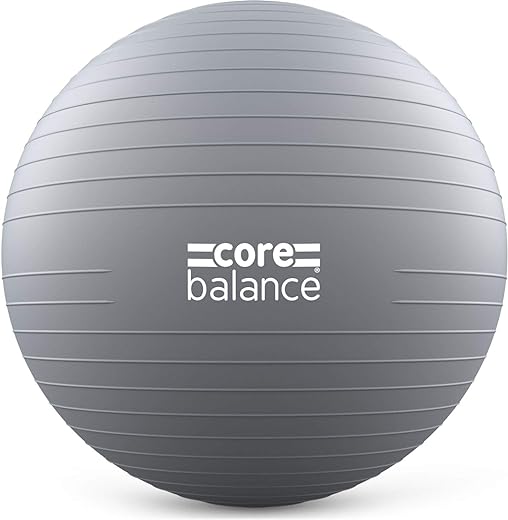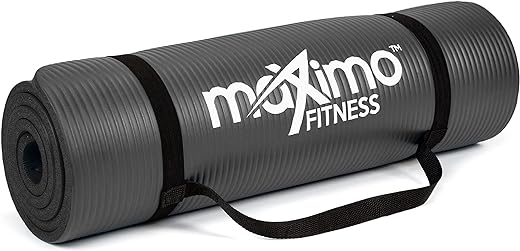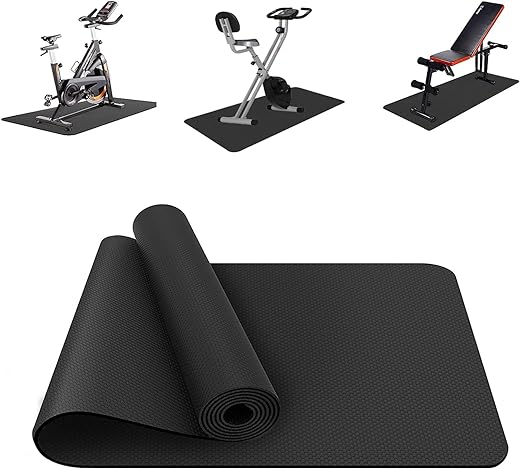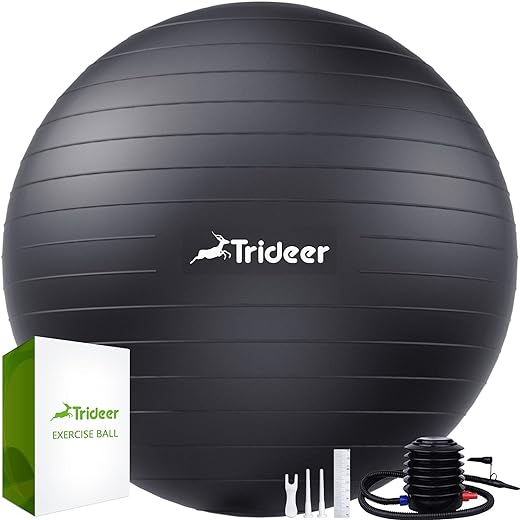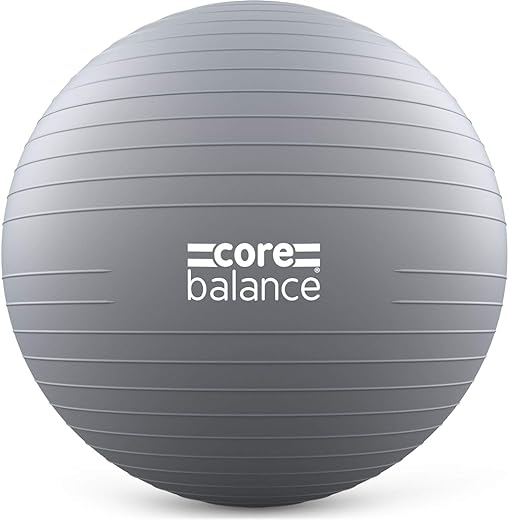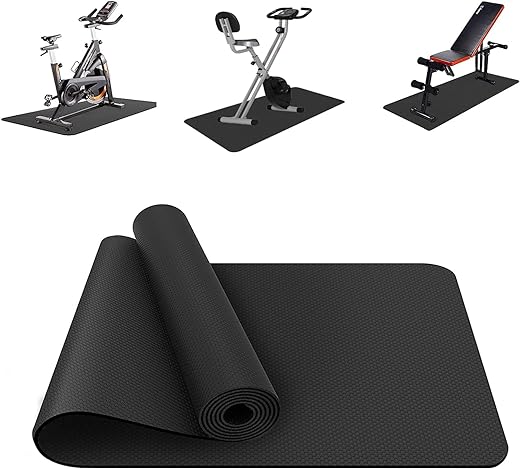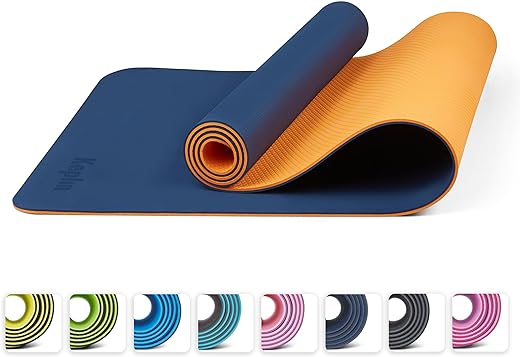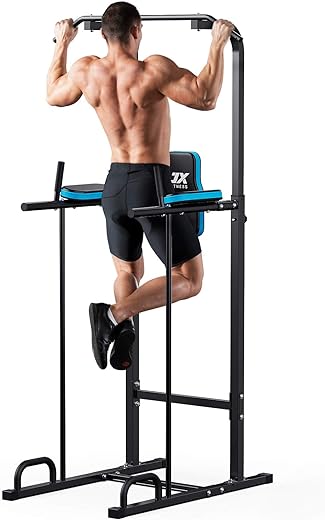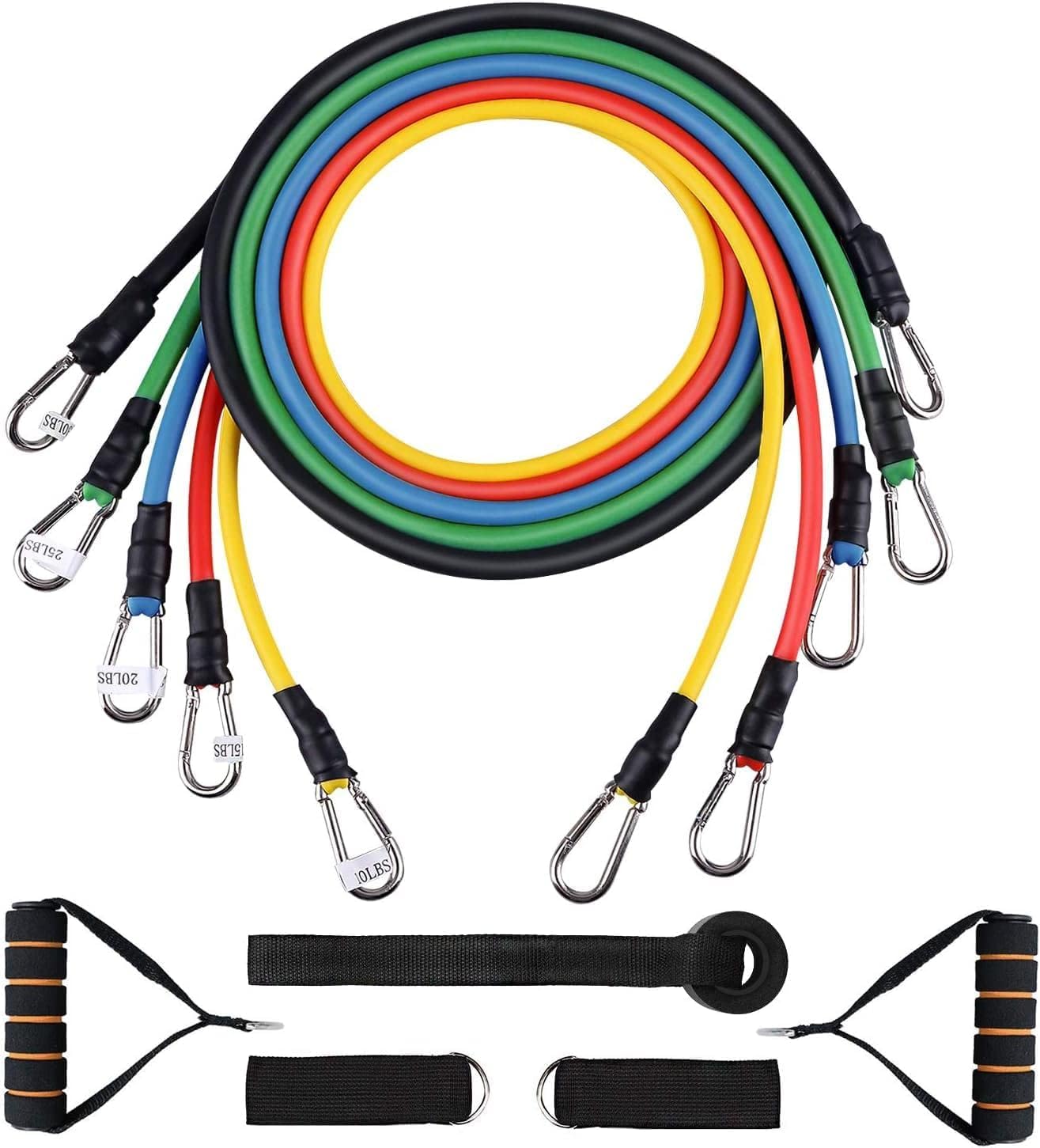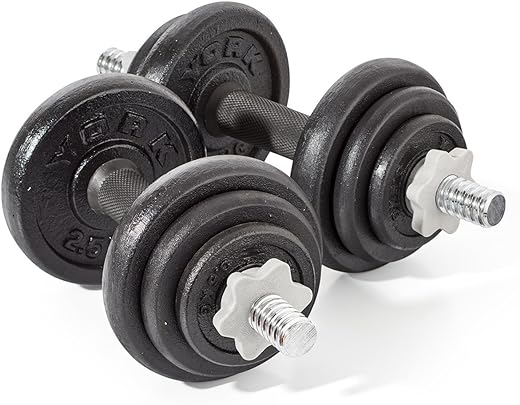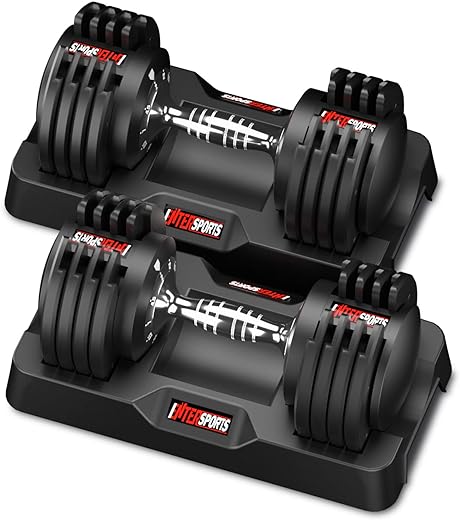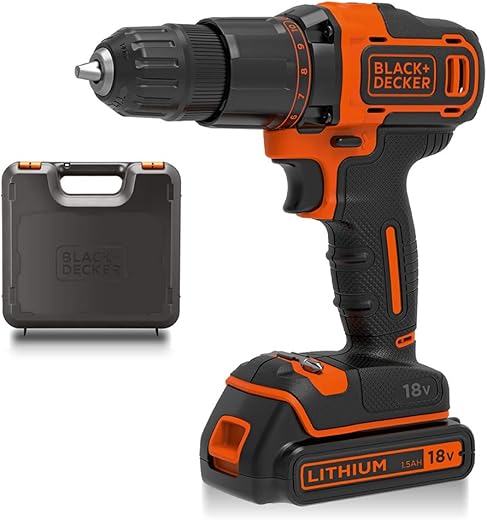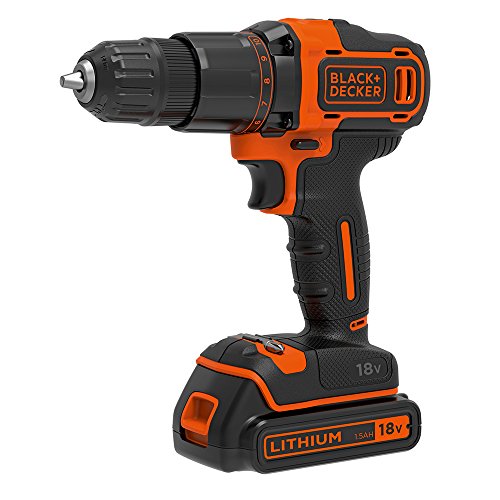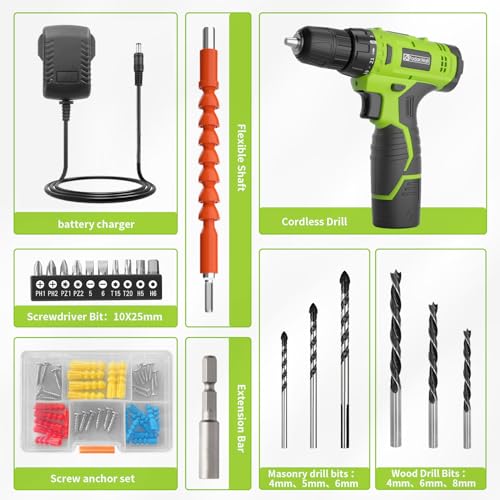In the realm of cordless drills, choosing the right tool for the job can significantly impact both efficiency and ease of use. This comparison will focus on two notable options: the BLACK+DECKER BCD700S1K Drill and the FADAKWALT 12V Drill. Each model offers unique features and specifications that cater to different user needs, making it essential to understand their distinctions and performance capabilities to determine which drill is best suited for various tasks.
Home Renovation
8.9
The BLACK+DECKER 18 V Cordless 2-Gear Combi Hammer Drill is a versatile power tool designed for drilling and screw driving in wood, metal, and masonry, featuring a durable all-metal motor and gearbox. With a keyless chuck for quick bit changes, 10 torque settings for precise control, and a maximum torque of 40Nm, it’s ideal for both high and low-speed applications.
DIY Projects
8.9
The FADAKWALT 12V Cordless Drill is a lightweight and versatile tool featuring a maximum torque of 180 in-lbs, making it suitable for a variety of DIY tasks and crafts. It comes with a 3/8” keyless chuck for easy accessory changes, a comfort grip for one-handed operation, and a complete set of accessories, including a lithium battery and charger.
BLACK+DECKER BCD700S1K Drill
Power Voltage
18V
Maximum Torque
40 Nm
Speed and Gear System
Two-speed gear system, 0-1400 RPM
Chuck Type
Keyless chuck
Weight
Not specified
FADAKWALT 12V Drill
Power Voltage
12V
Maximum Torque
30 Nm
Speed and Gear System
Single speed, not specified
Chuck Type
3/8″ inch Keyless chuck
Weight
1.36 kg
BLACK+DECKER BCD700S1K Drill
Benefits
- Good value for money, balancing price and quality effectively
- Lightweight and ergonomic design, making it easy to use for DIY tasks
- Sufficient battery life for home projects, with an option for additional batteries
FADAKWALT 12V Drill
Benefits
- Lightweight and easy to handle, making it suitable for beginners
- Cordless design offers convenience and freedom of movement
- Good value for money with a variety of included accessories and strong battery performance
BLACK+DECKER BCD700S1K Drill
Cons
- The charger comes with a UK plug, requiring an additional adapter for use in other countries
- The drill struggles with masonry drilling, especially for larger holes, which can result in drill bits getting stuck
FADAKWALT 12V Drill
Cons
- The drill is not powerful enough for heavy-duty use or construction tasks
- Some users noted that the included bits are of low quality and wear out quickly
Side-by-side comparison
| Feature | BLACK+DECKER 18 V Cordless 2-Gear Combi Hammer Drill (BCD700S1K-GB) | FADAKWALT 12V Cordless Drill |
|---|---|---|
| Voltage | 18V | 12V |
| Chuck Size | 1/2 inch | 3/8 inch |
| Battery Type | 1.5 Ah Lithium-Ion | Li-Ion |
| Torque Settings | N/A | 21+1 Torque Settings |
| Weight | Heavier due to 18V power | Lightweight |
| Drill Modes | Combi Drill (Hammer Drill) | Standard + Screwdriving |
| Speed Settings | 2 Gear (High & Low) | Single Speed |
| Kitbox Included | Yes | Yes |
| Price Range | Moderate | Budget Friendly |
BLACK+DECKER 18 V Cordless 2-Gear Combi Hammer Drill (BCD700S1K-GB)
Unique Selling Points (USPs):
- Powerful 18V Performance: Ensures more robust performance for heavy-duty tasks.
- Versatile Combi Drill: Ideal for drilling in various materials, including masonry.
- Two-Speed Gear System: Offers greater control based on the complexity of the task.
Pros:
- Strong enough for tough drilling jobs.
- Suitable for both DIY enthusiasts and professionals.
- Quick-charge lithium-ion battery.
Cons:
- Heavier weight compared to other models may cause fatigue in prolonged use.
- Higher price point than some alternatives.
Use-Cases:
- Home renovation projects
- Construction and woodworking tasks
- Masonry drilling applications
FADAKWALT 12V Cordless Drill
Unique Selling Points (USPs):
- Economical Choice: Budget-friendly without compromising basic functionality.
- 21+1 Torque Settings: Provides precise control for different materials.
- Lightweight Design: Easier to maneuver during prolonged use.
Pros:
- Lightweight and easy to handle.
- Compact size allows for use in tight spaces.
- Affordably priced with good value for general tasks.
Cons:
- Lower voltage may not suit heavy-duty tasks as well.
- Limited to standard drilling and screwdriving options.
Use-Cases:
- Home assembly tasks
- Light DIY projects
- General maintenance work
Conclusive Assessment
While both drills have their strengths, they cater to different sets of users with distinct needs.
- BLACK+DECKER 18 V Cordless 2-Gear Combi Hammer Drill excels in power and versatility, making it a great choice for professionals or serious DIY enthusiasts who require a tool capable of tackling tougher jobs, especially in masonry.
- FADAKWALT 12V Cordless Drill, on the other hand, stands out for its lightweight design and budget-friendly price point. It’s ideal for occasional users who need an efficient and easy-to-handle tool for lighter, everyday tasks.
Final Summary
In summary, if you’re engaged in heavier projects that require more power and functionality, the BLACK+DECKER 18 V Cordless 2-Gear Combi Hammer Drill is the recommended choice. However, if you’re seeking an economical, user-friendly drill for lighter tasks, then the FADAKWALT 12V Cordless Drill will serve you effectively without breaking the bank. Select based on your specific requirements to ensure the best fit for your toolset.
Exploring Innovative Drill Alternatives
Guidelines for Comparing Power Drills
When evaluating power drills, it’s essential to consider various factors that influence performance, usability, and value. Below are general guidelines and key factors to consider during your comparison.
1. Type of Drill
Power drills come in different types, each designed for specific tasks. Understanding the type can significantly impact your choice.
- Corded vs. Cordless:
- Corded drills typically offer greater power and are suitable for heavy-duty tasks.
- Cordless drills offer portability and ease of use in various locations.
- Hammer Drill vs. Regular Drill:
- Hammer drills provide additional percussion, making them ideal for masonry and concrete.
- Regular drills are more appropriate for wood and soft materials.
2. Power and Speed
The power and speed of a drill are critical for determining its effectiveness in different applications.
- Voltage:
- Higher voltage (e.g., 18V vs. 12V) typically means more power and better performance for tougher materials.
- RPM (Revolutions Per Minute):
- Look for a drill with variable speed settings to match different tasks.
3. Torque
Torque is crucial for driving screws and different materials effectively.
- Adjustable Torque Settings:
- A drill with multiple torque settings allows for better control when fastening screws.
- Max Torque:
- Check the maximum torque rating (measured in Nm) to understand the drill’s capability.
4. Battery Life and Charging
For cordless drills, battery performance is a vital aspect to consider.
- Battery Type:
- Lithium-ion batteries are generally preferred for their longer life and faster charging times.
- Run Time:
- Look for drills that specify run time per charge to gauge efficiency in prolonged tasks.
5. Weight and Ergonomics
A drill’s weight and design can affect user comfort, especially during extended use.
- Weight:
- Lighter drills can help reduce fatigue during extended use.
- Grip Design:
- An ergonomic handle enhances comfort and control, improving overall user experience.
6. Accessories and Features
Considering additional features can enhance your experience and efficiency during use.
- Chuck Type:
- Keyless chucks allow for quick and easy bit changes.
- Built-in Lights:
- LED lights can illuminate dark work areas, improving visibility.
- Carrying Case and Extra Bits:
- Some brands offer carrying cases and additional drill bits, providing added value.
7. Brand Reputation and Warranty
The reputation of the brand and its warranty can indicate the overall reliability of the product.
- Brand Reviews:
- Research user reviews and ratings to gauge satisfaction and performance.
- Warranty Length:
- A longer warranty can indicate confidence in the product’s durability.
Common Questions About Power Drills
What are the key features of the BLACK+DECKER BCD700S1K?
The BLACK+DECKER BCD700S1K is an 18V cordless 2-gear combi hammer drill notable for several key features:
- Cordless Design: It operates on an 18V lithium-ion battery (1.5 Ah), providing freedom of movement and flexibility during use.
- 2-Gear Transmission: The drill features a two-speed gear mechanism, allowing users to select between high-speed drilling and high torque for various applications.
- Keyless Chuck: It has a 13mm (1/2 inch) keyless chuck, making it easy to change drill bits quickly without the need for any additional tools.
- Hammer Functionality: The combi drill is equipped with a hammer function, making it suitable for drilling into harder materials like brick and masonry.
- Torque Settings: The drill typically includes multiple torque settings (usually around 11+1), enabling precise control over the driving of screws.
- Compact and Lightweight: Its ergonomic design ensures comfort during prolonged use, while being lightweight makes it easy to handle.
- Includes Kitbox: The product comes with a handy kit box for organized storage and transport of the drill and accessories.
These features make the BLACK+DECKER BCD700S1K a versatile tool suitable for both DIY enthusiasts and professionals.
How does the FADAKWALT 12V drill compare in performance?
When comparing the performance of the FADAKWALT 12V cordless drill to the BLACK+DECKER 18V cordless combi hammer drill, there are several key factors to consider:
- Voltage and Power: The BLACK+DECKER drill operates at 18V, which typically provides higher power and torque compared to the FADAKWALT drill’s 12V rating. This higher voltage allows the BLACK+DECKER drill to handle more demanding tasks, including heavier drilling and driving applications, especially in harder materials.
- Torque Settings: The FADAKWALT drill features a 21+1 torque setting, which allows for precision when driving screws in various materials. The specific torque range of the BLACK+DECKER drill is not provided in this comparison, but higher voltage drills generally offer greater torque for tougher jobs.
- Battery Capacity: The BLACK+DECKER drill includes a 1.5 Ah lithium-ion battery, which suggests a balance between weight and runtime. The specifics of the FADAKWALT’s battery capacity are not detailed here, but the effectiveness can depend significantly on battery quality and charge duration.
- Weight and Maneuverability: Typically, a 12V drill like the FADAKWALT will be lighter and more compact than an 18V drill, which can enhance maneuverability and ease of use in tight spaces. However, the trade-off is often lower overall power.
- Versatility: The BLACK+DECKER is categorized as a combi hammer drill, indicating that it can perform drilling in masonry, in addition to drilling in wood and metal. The FADAKWALT, while versatile for standard drilling and driving tasks, may not be as effective for heavier-duty applications like masonry drilling.
In conclusion, the FADAKWALT 12V drill is likely more suitable for lighter tasks and users who prioritize portability, while the BLACK+DECKER 18V drill is designed for more demanding jobs requiring increased power and versatility. The choice between the two will ultimately depend on the user’s specific needs and application requirements.


